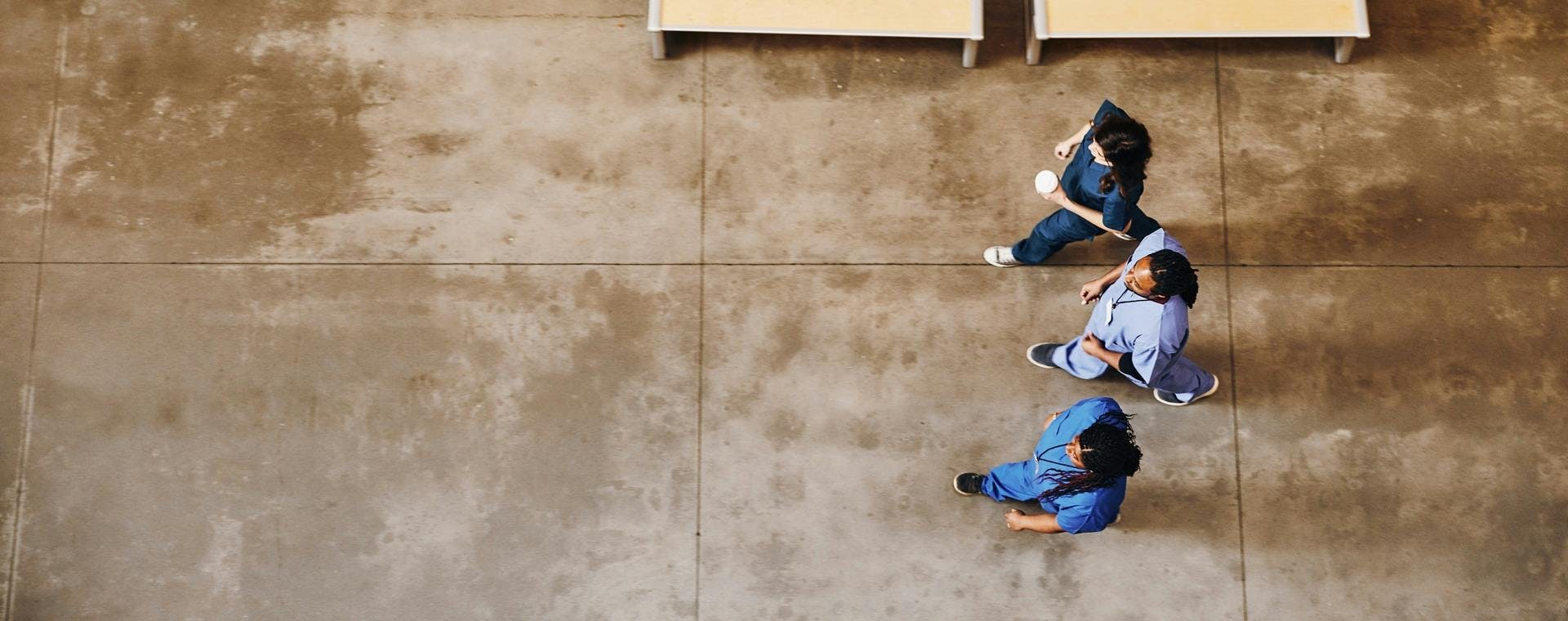Coroner’s inquest: medical negligence

If you suspect that a loved one’s death resulted from medical negligence, a coroner will likely start an inquest to investigate the circumstances of their death. During challenging moments like this, it’s important to have a trusted solicitor by your side. Choosing a solicitor with specialised expertise in inquests and compensation claims can help to make sure your interests are genuinely represented.
At Switalskis, we pride ourselves on being more than just solicitors; we're your guiding hand and your support system. We understand the gravity of what you're going through, and our mission is to demystify the process for you. With a blend of expertise, compassion and a commitment to clear communication, we aim to make this journey as smooth as possible for you.
To speak to a solicitor about a coroner's inquest for a medical negligence claim. Call us today on 0800 1380 458 or contact us through the website

When it comes to the intricacies of a coroner's inquest linked with medical negligence, the path can seem tangled and uncertain. That's where Switalskis steps in. Our approach is holistic, making sure that we broaden your understanding of the inquest process.
Firstly, we provide a comprehensive explanation of the process. We believe that knowledge is empowering, and by making sure you're well-informed, we aim to alleviate some of the anxieties surrounding the inquest.
Our seasoned team of medical negligence inquest solicitors is always ready to offer their expertise and guidance. They've been through this process countless times and bring a wealth of experience to the table. This means they're adept at anticipating potential challenges and navigating them effectively.
But our support isn't just procedural. We recognise the emotional weight that inquests carry. We’re here to listen, understand and stand by your side in this journey.
A coroner's inquest is an official procedure that investigates unexpected or unnatural deaths. The primary goal isn’t to assign blame or liability but to determine four statutory questions: the who, where, when and how a death came about.
This process is particularly important when the circumstances of the death are unnatural, unexplained, or potentially linked to external factors, such as medical negligence. The inquest provides a structured environment where evidence is examined, witnesses may be called upon, and expert opinions are sought.
For families and loved ones, a coroner's inquest may provide answers that can linger after a sudden loss. The inquest aims to look at relevant details and any public concerns that are identified. In essence, it’s a fact-finding investigation into how someone died.
A coroner's inquest, while procedural, is a deeply significant event for the family and may shed light on the circumstances surrounding a person's death.
The process begins when a death is reported to the coroner, typically because it was sudden, unexplained, or there are concerns about the circumstances surrounding it.
Before the formal inquest, the coroner may order post-mortem examinations or gather medical records to understand the medical cause of death. This preliminary phase is vital as it sets the foundation for an inquest. It is the coroner’s decision whether an inquest is opened. We can refer to the coroner if we feel an inquest should be opened but ultimately it’s their decision. An inquest may not be an appropriate step in every case of fatal medical negligence.
The inquest hearing is held in a court-like setting with the coroner overseeing the proceedings. It's important to note that an inquest is not a trial. There's no prosecution or defence, it is an inquisitional investigation. Relevant evidence is presented and examined. This can range from medical reports and expert testimonies to photographs and personal accounts. Throughout the inquest, families can ask questions and seek clarity.
Various people can be invited to give evidence. This could include medical professionals who treated the deceased, eyewitnesses, family members, or even experts in specific fields relevant to the death.
After reviewing all the evidence, the coroner will make a determination. This is a statement regarding the identity of the deceased and how, when and where they died and is the conclusion of the inquest.
In representing a family, Switalskis aims to make sure all relevant details relating to the individual’s death are explored, understood and acknowledged. At Switalskis, we understand the emotional weight of inquest proceedings, and we’re here to guide, support and stand by your side.

When does a death in a medical setting lead to a coroner's inquest?
An inquest is about seeking answers, understanding the circumstances, and making sure that similar incidents can be prevented in the future. At Switalskis, we're committed to guiding families through this process, making sure they have the support, knowledge and advocacy they need during such challenging times.
The intersection of coroner's inquests and medical negligence claims is an important one. While the primary purpose of an inquest isn't to establish legal liability, its findings can significantly influence a subsequent negligence claim. Here's how:
At Switalskis, we understand the impact an inquest can have on a medical negligence claim. Our team is adept at navigating the nuances of both, making sure that families aren’t only well represented but also well supported throughout the process. We believe in seeking justice, and the insights from an inquest can be a powerful tool in that pursuit.
The financial aspects of legal representation during a coroner's inquest can be a significant concern for many families. It's essential to understand how the process works and what options might be available:
At Switalskis, we believe that everyone deserves fair representation, regardless of their financial situation. We're committed to providing clear, upfront information about costs and exploring all available options to make sure families receive the support they need during the vital process of an inquest.
Contact us today and let's start your journey towards recovery together. Call us today on 0800 1380 458,or get in touch via our form.
Choosing the right legal partner during challenging times can make all the difference. At Switalskis, we're not just dedicated to providing the highest standards of legal representation; we're about building trust, understanding, and a commitment to excellence. Here's why so many choose us
The legal world can be a maze of jargon and procedures. We pride ourselves on breaking down these complexities and making sure you're never left feeling overwhelmed. Our approach is to simplify things so you're always in the loop and understand every step of the journey.
We recognise that behind every case, there's a story, with emotions and lives affected. Our team is trained to offer not just legal advice, but emotional support too. We're here to listen, understand, and stand by your side so you never have to feel alone.
With years of experience and a dedicated team of professionals, our expertise in the field of clinical negligence is unparalleled. We've navigated countless cases, bringing our wealth of knowledge to the table each time to secure the best possible outcomes for our clients.
We're fierce advocates for justice. We believe in standing up for what's right, working to help your voice be heard, and fighting so that your rights are always protected. We're not just your solicitors; we're your champions.
Navigating a coroner's inquest related to medical negligence can be challenging, but you don't have to do it alone. Let Switalskis stand by your side and offer clarity, compassion and unmatched expertise. Reach out to us at 0800 1380 458 or contact us through the website.